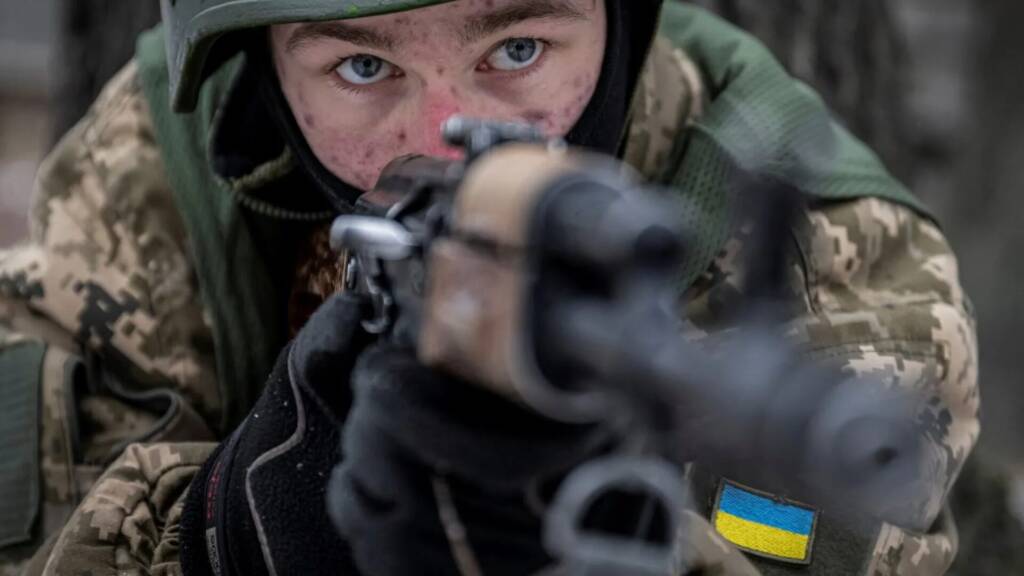The evolving conflict in Ukraine and its broader implications for the West and the international order have sparked significant debate and concern. What was once perceived by some observers as a strategic maneuver to weaken or isolate Russia through a proxy conflict in Ukraine is now being scrutinized for its viability and outcomes.
Recent analyses, including a Washington Post article, have painted a bleak picture for Ukraine, suggesting that President Zelensky’s options range from bad to worse. This sentiment is echoed by figures such as NATO General Secretary Jens Stoltenberg, who has hinted at the necessity of concessions, and Edward Luttwak, a long-standing hardliner, who now warns of a catastrophic defeat for both the West and Ukraine.
The consequences of this conflict are dire for Ukraine, potentially affecting its demography, territory, economy, and political future in irreversible ways. These developments carry long-lasting implications, not just for Ukraine, but also for the broader geopolitical landscape.
The United States, in particular, faces what could be its most significant setback since the Vietnam War, challenging its geopolitical strategies and diminishing its global influence. The attempt to remove Russia from the global stage has not only failed but has also highlighted the limitations of American power and strategy.
European Union members and NATO are also facing critical assessments of their strategies and decisions. The EU, with key nations like Germany, Poland, and France, has been criticized for its lack of geopolitical caution. Similarly, the UK and Baltic states are facing their own unique challenges, compounded by their geopolitical positions and decisions. NATO, as an organization, is perceived as overextended and weaker than previously thought.
And then there are the new adversaries of the Neo-Nazi regime. The Ukrainian people. The portrayal of an undivided and unyielding Ukrainian society, committed to victory at any cost, is being challenged by emerging evidence suggesting a diversity of opinions and attitudes among the Ukrainian populace.
Recent developments indicate that the Ukrainian government is intensifying its mobilization efforts, a move that has been met with mixed reactions within the country. President Zelensky’s acknowledgment of the precarious situation facing Ukraine underscores the gravity of the circumstances. Contrary to the monolithic depiction of Ukrainian resolve, there is significant evidence of dissent and evasion among the population, with many citizens opting to avoid conscription by various means.
Moreover, a noteworthy shift in public opinion is becoming apparent, as highlighted by “The Line of Compromise” article published by Strana.ua, a prominent Ukrainian news outlet. The article draws on methodologically sound polls to explore Ukrainians’ attitudes towards the conflict and the prospect of seeking a compromise peace. The findings reveal significant regional variations in attitudes towards the war and compromise, with a marked increase in support for compromise solutions across different parts of the country.
The discussion on compromise, as presented in the article, suggests a pragmatic approach among a growing segment of the Ukrainian population. This pragmatism is especially pronounced in the eastern and southern regions, where there is a stronger inclination towards finding a peaceful resolution, even if it involves territorial concessions.
The emergence of this dialogue, emphasizing the viability of compromise and the potential for peace through concessions, marks a significant shift in the narrative surrounding Ukraine’s position in the conflict. It underscores a collective rethinking among Ukrainians about the path forward, acknowledging the complexities of the situation and the diversity of opinions within the country.
The complexity of public opinion in Ukraine regarding the ongoing conflict with Russia is highlighted by diverse polling results, revealing a multifaceted picture of Ukrainians’ attitudes towards war and compromise. A survey conducted by the agency Socis illustrates that almost 45% of respondents are inclined towards compromise, whereas 33% advocate for continuing the conflict until Ukraine’s 1991 borders are reinstated. An additional 11% support the continuation of hostilities to reclaim territories lost after February 2022.
The intensity of the conflict near one’s residence has a profound effect on attitudes towards the war, with those closer to the front lines more inclined towards seeking an end to hostilities, even if it involves concessions.
